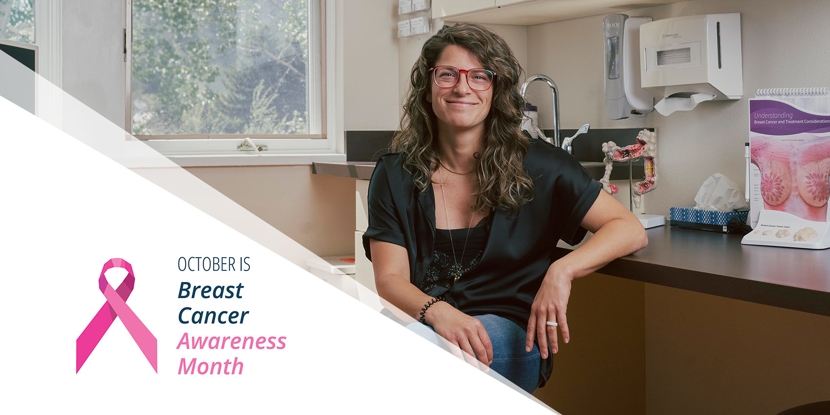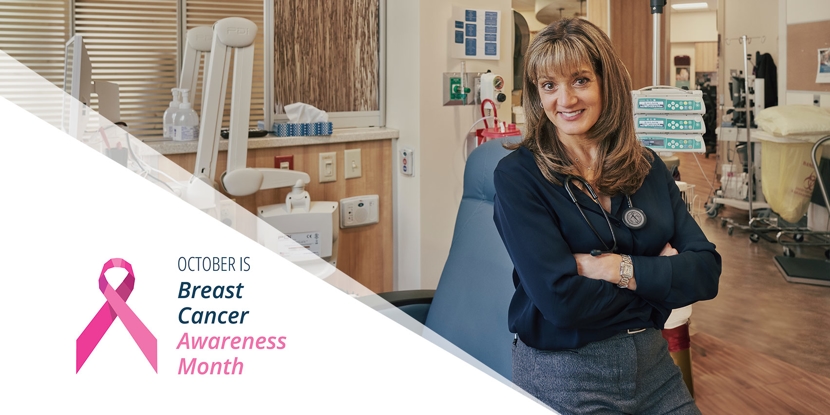No Road Trip Required: University of Utah Neurologists Provide Exceptional Care for Movement Disorders at St. John’s Health
- Category: Neurology
- Posted On:
- Written By: St. John's Health
It was deep in winter 2017 when neurologist Dr. Paolo Moretti met with a longtime Parkinson’s patient in his University of Utah practice; the patient and her husband had driven from Jackson Hole for the appointment in rugged conditions. “Her husband tells me how he has been trying to drive all the way here between storms, and they had to drive back,” he recalled. “I remember thinking it doesn't make any sense that we have patients that have to drive hundreds of miles in the middle of winter to see us.”
In that moment, Dr. Moretti’s idea was born, to collaborate with St. John’s Health (SJH) in Jackson with the goal of providing exceptional movement disorder care in a way that keeps patients closer to home. Recognized as a National Parkinson’s Foundation Center of Excellence, University of Utah Health offers exceptional care in the intermountain west. Today, in concert with his colleague Dr. Guillaume Lamotte, Dr. Moretti visits the neurology clinic at St. John’s Health for two days every six weeks — delivering top caliber care at great convenience for local patients.
Though the clinic was first established during the emerging pandemic, Dr. Moretti said that only offering telehealth wasn’t sufficient. “The type of work that we do can, to a limited extent, be done via video. But a lot of what we do, because it has to do with movement in the body, it's something that we have to see, we have to really be able to touch the patient. It's the sort of thing that we cannot do solely on video very well.”
Dr. Moretti, who also serves as the Neurology Division Chief at the University of Utah Hospital, highlighted how beneficial it can be for patients with movement disorders to have access to experts in this subspecialty. “Obviously, any neurologist can see the patients we see competently, but we bring a little bit more expertise because that's what our careers are focused on. Inevitably, we have more experience in some areas like Parkinson’s,” he said. “We have more knowledge in available therapies, more of an ability to troubleshoot some difficult problems with these conditions, and a better ability to distinguish between disorders that are similar or appear to be similar on the surface but can be dramatically different in terms of their evolution over time.”
Dr. Lamotte, a movement disorders specialist, explained that movement disorders include a broad spectrum of conditions that require highly-tailored approach — interventions as unique as each patient. “The vast majority of patients that we see are patients with Parkinson's disease, a disease where you have slowness of movement, tremor, and muscle stiffness, among other symptoms. The second most common type of patients that we see are patients with tremor. For example, there are patients who have essential tremor, which is the most common form of tremor in the US.” He adds that other common conditions he sees in the clinic include dystonia, gait difficulties, and other involuntary movements.
“We don't have a cure for Parkinson's or medication that can slow down the course of the disease,” Dr. Lamotte continued. “But we have many different options to treat the symptoms of Parkinson's disease. It's always an individualized approach on the needs of the patient.” Various interventions in the team’s toolbox include medication, deep brain stimulation, physical therapy, speech therapy, occupational therapy, exercise strategies, and botulinum toxin injections among others.
Twenty years ago, the options for management of conditions like Parkinson’s were far more limited, he observed. “Now, it's completely different because of the different options that we have,” Dr. Lamotte said. The team strives to manage the diverse ways in which a disease can impact a patient, and how they can customize a plan to improve the patient’s quality of life. “Over the past ten years, there have been a lot of studies showing that Parkinson's affects memory, blood pressure regulation, bowel movement, bladder control, emotion and a lot of other functions in the body.” Mitigating the impact on these diverse systems can dramatically help patients live more normal, happy lives.
In collaboration with a patient’s other doctors and therapists, Dr. Moretti and Dr. Lamotte strive to support patients on their unique journey as they navigate these complex conditions — all while minimizing the financial and logistical strain that traveling to Salt Lake City places on patients and their families.
“I'm trying to bring as many possible resources as possible locally that will hopefully improve the lives of people in Jackson Hole,” concluded Dr. Moretti.
Supporting the depth and breadth of medical specialty care in Jackson is one of the major goals of the St. John’s Health 2024 Strategic Plan. “We are so fortunate to have Dr. Moretti, Dr. Lamotte, and the other neurologists from University of Utah Health see patients at the St. John’s Health clinic,” said SJH CEO Jeff Sollis. “We hope in the next few years to be able to expand our offerings and offer even more local resources for patients experiencing neurological conditions such as seizures, brain tumors, spinal cord injuries, multiple sclerosis, Alzheimer’s Disease and other medical conditions.”



